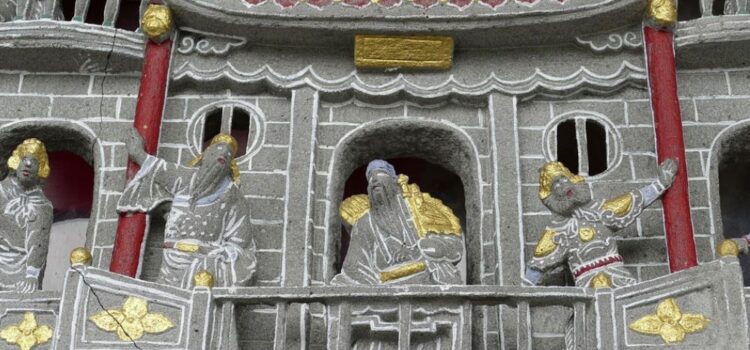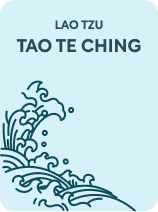

This article is an excerpt from the Shortform book guide to "Tao Te Ching" by Lao Tzu. Shortform has the world's best summaries and analyses of books you should be reading.
Like this article? Sign up for a free trial here .
What does it mean to be a Taoist leader? How can Taoist leaders guide other leaders? Why must Taoist leaders never introduce the concept of “goodness”?
In Taoism, leadership is used to promote harmony and balance. A Taoist leader needs to learn to be trustworthy, use action over words, be unbiased, and guide others to the Tao.
Keep reading for more about Taoist leaders.
Taoism and Leadership
In order to promote harmonious living on a larger scale, leaders must embrace the teachings of Taoism for leadership. If a leader doesn’t live according to the Tao, their disconnection from the universe will likely be shared by those who follow them.
To be a Taoist leader, don’t try to control the people you lead. Ultimately, leadership requires trust. Trust generates more honesty and respect amongst the people you lead. If you don’t trust your people, you create the potential for conflict as you tell your people that they aren’t trustworthy or respected.
When issues arise, you must trust that your people will do the right thing. You may be tempted to take control of the situation through regulation and restriction. However, though it sounds counterintuitive, the more that you try to restrict the people under your leadership, the less control you actually have. This is because strict regulation implies that you don’t have faith in your people, setting the stage for further internal conflict.
How to Be a Strong Leader
The strength of a leader can be determined by their relationship to the people they lead:
- The strongest leader is one who doesn’t have to constantly make their presence known. They’re able to guide others without manipulating emotions. For example, a strong leader wouldn’t have to utilize propaganda to get their constituents to follow them.
- The average leader is one who is loved by their constituents. After that is a leader who is feared by their constituents. In both cases, the leader uses emotion to ensure their authority. For example, an average leader may use fear tactics to create a “common enemy,” thus rallying their constituents and boosting their public image.
- The weakest kind of leader is one who is hated. They don’t live according to the ways of the Tao and have no genuine authority in the eyes of the people they’re meant to lead. For example, a weak leader may imprison or eliminate those who oppose them, making clear that defiance to their rule will be met with punishment.
Guiding Others to the Tao
If you lead through the Tao, others will be drawn to you and will ask for guidance, especially other leaders. When someone comes to you for advice or help, don’t offer your money or wisdom. Instead, offer to teach them the ways of the Tao, as it is forgiving and allows for growth. You can help them gain earthly power through your wisdom, but you’ll help them find a universal power within the Tao.
Action Over Words
Taoist leadership should rely more on action than words. In fact, the greatest leaders are able to generate large-group cooperation without ever having to say a word.
Example: A politician who assists in the creation of community kitchens to combat hunger will likely be more respected than the politician who makes speeches about hunger but never takes action to fix it. Furthermore, while the community will be able to directly support a community kitchen, they can’t take cooperative action based upon empty words.
Note: taking action does not equate to using force or violence. Even when people challenge you or resist your guidance, avoid using violence at all costs. Violence will only make you seem unstable or desperate. Instead, adapt to the flow of the world around you, embracing that many of the workings of the universe are outside of your control.
Leading Through Moderation
Lead through moderation, not extreme ideals. Moderation stems from objectivity. By removing personal bias, you can make temperate, wise decisions based on the guidance of the Tao. Conversely, if your choices are driven by ambition or personal desire, you’re more prone to make extreme or one-sided decisions driven by emotion.
To maintain moderation, never use “goodness” as a platform for your leadership. If you introduce the concept of “good,” you also create the concept of “evil.” If you try to convince your people of the “goodness” of one side, you’re inherently placing your personal biases onto your actions and setting the stage for an opposing force to arise. Lead through observation and adaptability instead of ideals, and “evil” will disappear.
Final Thoughts on Taoist Leadership
As you continue to grow as a leader, keep the following in mind:
- Remember that the more power and influence you possess, the more others will be drawn to you. The more influence you hold, the more important the Tao becomes. The Tao promotes objectivity and humility. Without these, power can be a corrupting force.
- Remain humble, admitting your faults and working to remedy them. Connect with people you lead and show them that you value and respect them. This will allow you to lead without resistance and guide others through empathy.
- When faced with questions or opposition, don’t use eloquence to prove yourself. This is often a sign of insecurity. Instead, keep your thoughts and words simple. This will keep you genuine and sincere, removing your ego from the equation.
- Be generous. The more you give to others, the more fulfilled you’ll feel and the more content your constituents will be. With contentment, the people you lead won’t seek happiness elsewhere. Instead of longing for a “better” situation, they’ll engage with their work and bolster the people around them.

———End of Preview———
Like what you just read? Read the rest of the world's best book summary and analysis of Lao Tzu's "Tao Te Ching" at Shortform .
Here's what you'll find in our full Tao Te Ching summary :
- What the natural order of the universe is
- How the "Great Mother" offers energy to all beings
- How you can achieve harmonious living






